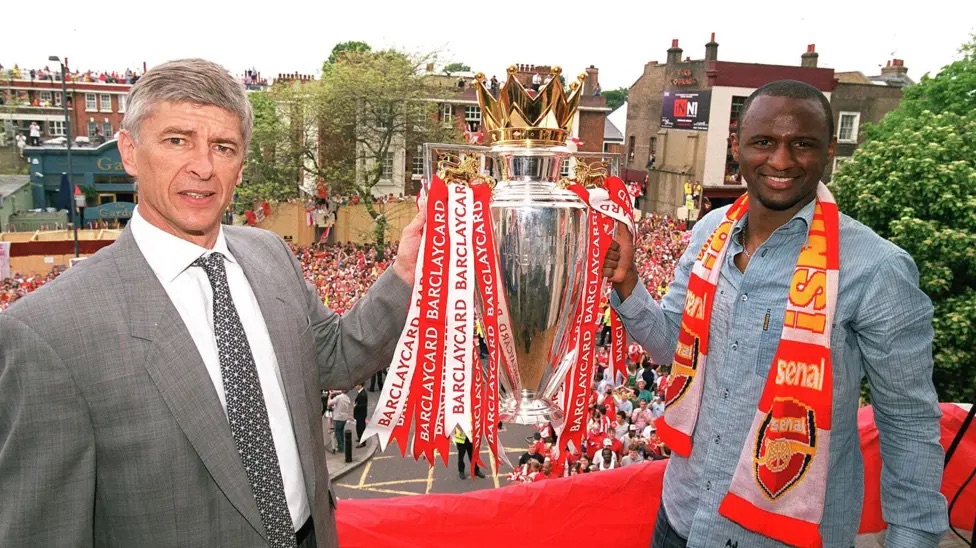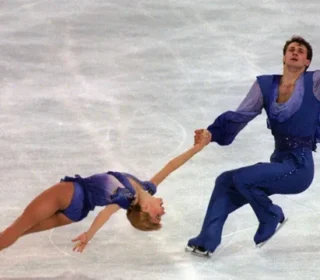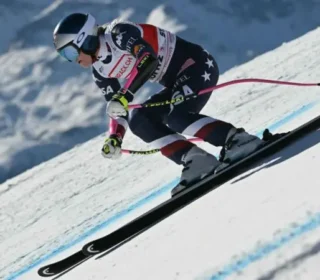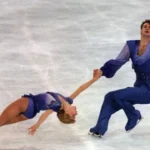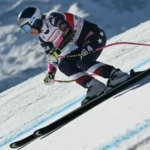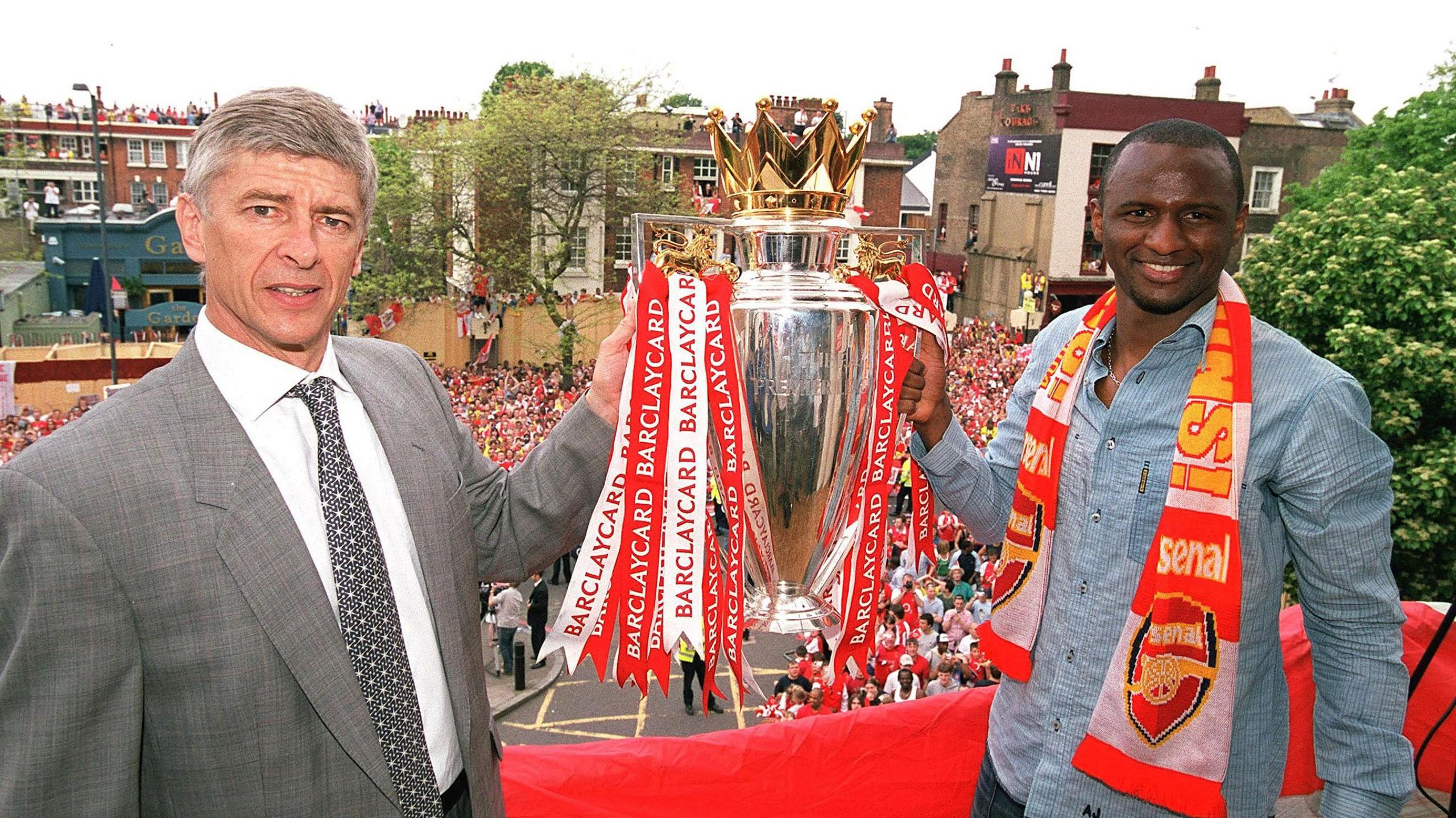
Ian Wright was the poster boy for many black Arsenal fans growing up in the 1990s, with his gold tooth, charismatic persona and hunger for goals.
Not many Gunners supporters will disagree with his photo being on the cover of Black Arsenal but, for Dr Nwonka and other Nigerians, there was another significant player.
They remember the Nigeria team that beat Argentina to win the Olympic gold medal in 1996, and in particular the man who scored the decisive goal in the semi-final win over Brazil – Kanu.
Born in Imo State, the striker joined Arsenal from Italian giants Inter Milan in 1999.
“Him coming to Arsenal was [of] particular cultural importance for me and people like me,” said Dr Nwonka.
Arsene Wenger, the then-manager of Arsenal, was well known for buying French and African players, and nurtured some of the continent’s biggest names during his 22 years in charge from 1996 to 2018.
When enduring a poor run of form, critics in British tabloid newspapers would say he should sign more established players and those better suited to English culture.
But the Frenchman gained huge respect for his model of management when Arsenal won the title in 2003-04.
That triumph was enhanced by the fact that Wenger’s side did not lose a single game – an achievement that has yet to be repeated.
That team, dubbed the Invincibles, included Ivory Coast defender Toure and Cameroon right-back Lauren, along with Kanu.
“It’s one thing to have African players who are doing well and are entertaining, but winning makes a difference,” said Dr Nwonka.
This model of success is why some ‘new school’ African football fans support Arsenal’s London rivals Chelsea, whose dominance of the English game under Jose Mourinho featured icons such as Ivorian Didier Drogba, Ghana’s Michael Essien and the Nigerian John Obi Mikel.
Fighting back against racism
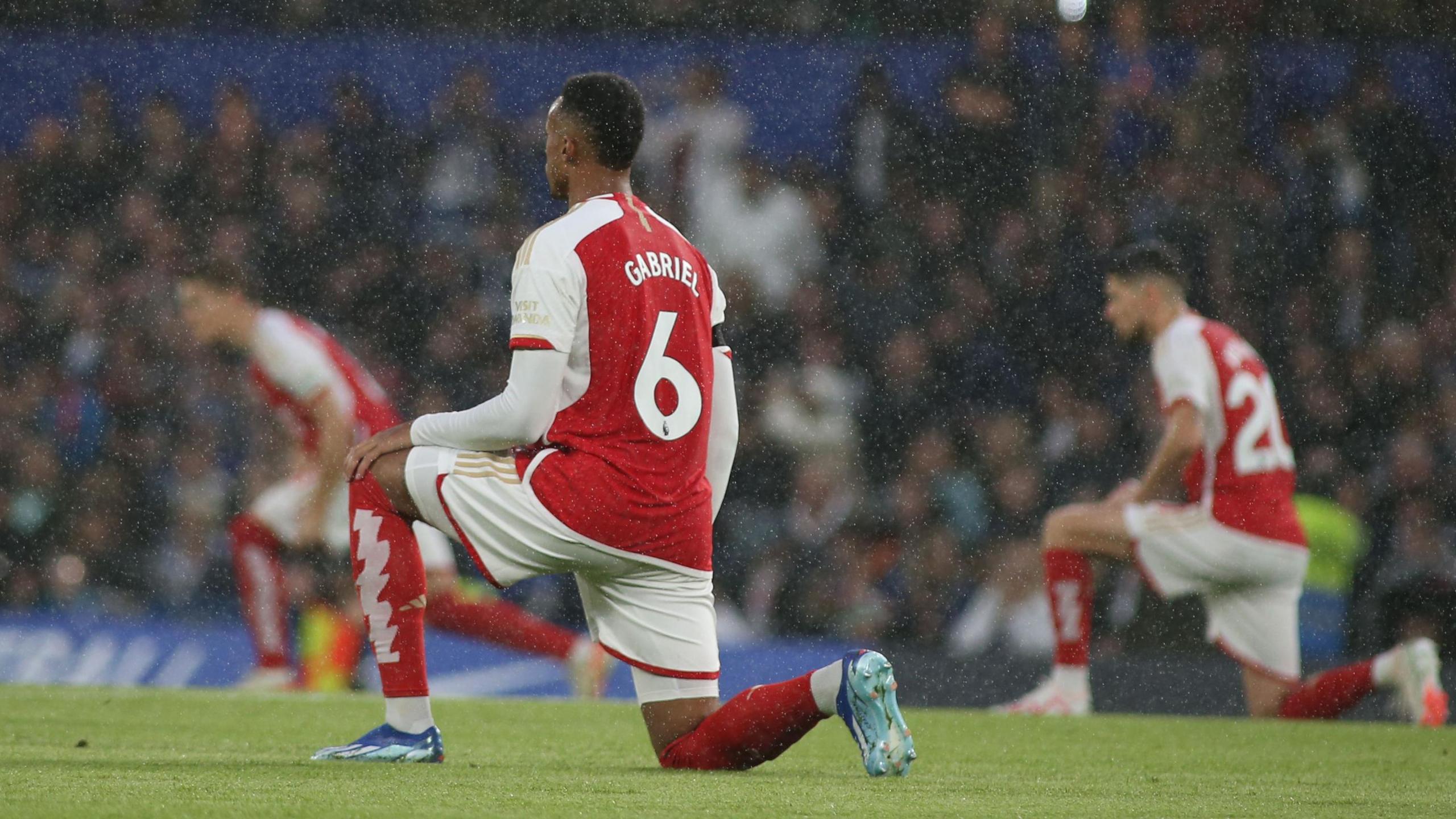
Despite the stunning success of black footballers, racism remains a pervasive issue on the pitch and beyond.
In 2021, following their Euro 2020 final defeat by Italy, three England players – Bukayo Saka, Jadon Sancho and Marcus Rashford – faced a racist backlash online after missing penalties in the shootout.
Eleven people were arrested, and Arsenal released a statement in support of Saka and his Three Lions team-mates.
“This cannot continue, and the social media platforms and authorities must act to ensure this disgusting abuse to which our players are subjected on a daily basis stops now,” it said.
However, Saka has since received more abuse, including after a loss against Nottingham Forest last year.
Racism remains the most reported form of discrimination across all levels of English football this season, according to statistics gathered by anti-discrimination charity Kick It Out.

